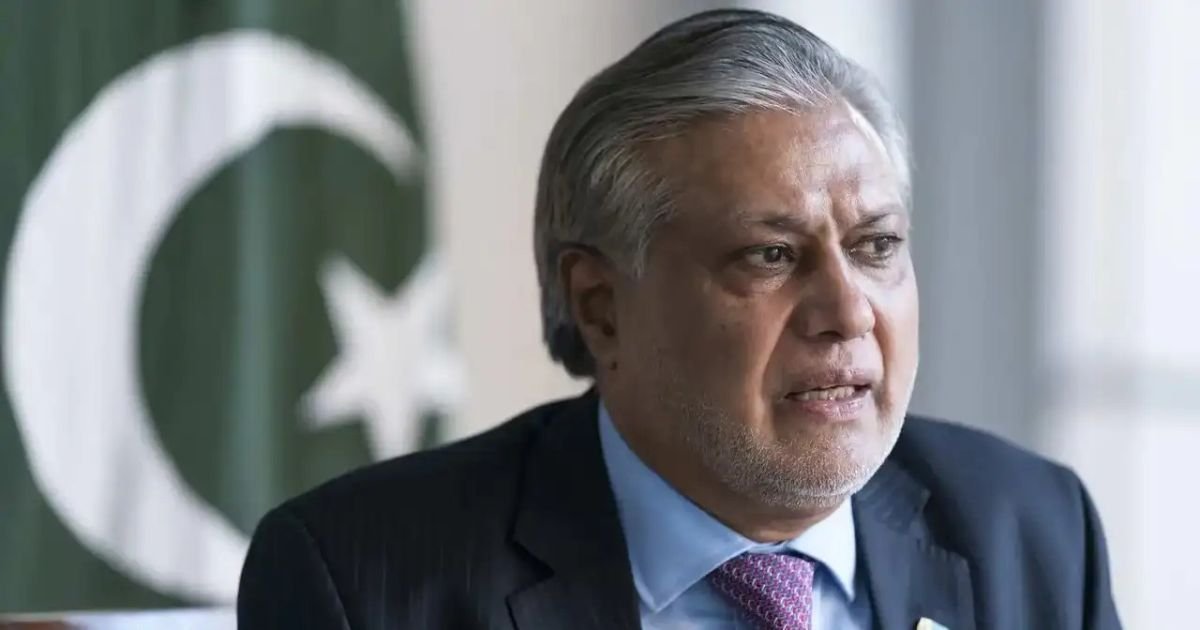In a forceful address at the ministerial meeting of the Emergency Arab-Islamic Summit in Doha, Deputy Prime Minister and Foreign Minister Ishaq Dar urged the international community to take immediate and decisive steps against Israel to “safeguard the global order.” His statements came in the wake of an Israeli strike on Qatar, which targeted Hamas leaders and resulted in the death of a Qatari security officer and five Hamas members. The attack has drawn widespread international condemnation and added to regional tensions.
A Flagrant Violation of Sovereignty
Speaking at the preparatory meeting for the summit, which was convened under the auspices of the Arab League and the Organization of Islamic Cooperation (OIC), Minister Dar condemned the Israeli aggression in the “strongest possible terms.” He described the attack as “illegal and unprovoked,” a “reckless and provocative” act that constitutes a “flagrant violation of the sovereignty and territorial integrity of Qatar.”
The Foreign Minister emphasized that this assault was not an isolated incident but a clear manifestation of what he termed Israel’s “rogue mindset,” which flagrantly disregards international law, including Article 2(4) of the UN Charter, which prohibits the threat or use of force. He warned that “no state is safe from such an unhinged entity that defies all precepts of civilised behaviour.”
Deputy PM Ishaq Dar urges suspension of Israel’s UN membership & global sanctions at the Arab-Islamic summit in Qatar.
He proposed 7 measures to curb Israeli aggression, calling on the Islamic world to unite with a decisive message. #SamaaTV #QatarSummit #Palestine pic.twitter.com/TRYs3MvfAg
— SAMAA TV (@SAMAATV) September 15, 2025
A Global Test of Credibility
Minister Dar’s address framed the issue of Israeli accountability as a “test for the credibility of the global system.” He outlined several urgent steps that must be taken to ensure that Israel is held accountable for its actions and to deter further violations of international law. These included:
- Holding Israel Accountable: He stressed that Israel must be held accountable for war crimes and crimes against humanity, and not be allowed to get away with attacking Islamic countries and killing people with impunity.
- Creating a Unified Task Force: A key proposal was the establishment of an Arab-Islamic task force to monitor Israeli activities in the region. This task force would be mandated to adopt effective deterrent and offensive measures in a synchronized manner to ward off Israeli expansionist designs.
- Suspending UN Membership: Dar called for pursuing the suspension of Israel’s membership in the United Nations, stating that such a move would send a “clear message on seriousness by the Ummah.”
- Imposing Punitive Measures: He urged member states to actively consider implementing additional punitive measures against Israel to reinforce accountability and deter further violations of international law.
- Demanding a Ceasefire: The Foreign Minister pressed the UN Security Council to urgently demand an immediate, unconditional, and permanent ceasefire under Chapter VII of the UN Charter. This demand also included the release of hostages and an exchange of Palestinian prisoners.
- Ensuring Humanitarian Access: He highlighted the critical need for unfettered, sustained, and secure humanitarian access to all civilians in need, along with the protection of aid workers, medical teams, and UN personnel in the Occupied Palestinian Territories.
- Reviving the Two-State Solution: The address concluded with a call for the revival of a genuine and time-bound political process to achieve a just, comprehensive, and lasting two-state solution in accordance with international law and relevant UN and OIC resolutions.
Extensive Diplomatic Engagements
On the sidelines of the preparatory meeting, Minister Dar engaged in a series of high-level pull-aside meetings with his counterparts, where he reiterated Pakistan’s unwavering stance and called for unified action.
- With Egypt’s Foreign Minister Dr. Badr Abdelatty: Both leaders condemned the illegal Israeli strikes on Qatar and other Muslim nations, terming them blatant violations of sovereignty. They reaffirmed their support for the Palestinian cause and stressed the urgent need for unity within the Muslim Ummah.
- With Iran’s Foreign Minister Abbas Araghchi: The two ministers strongly condemned Israel’s unprovoked strikes and underscored the pivotal role of the Arab League and the OIC in uniting the Muslim Ummah. They reaffirmed their unwavering support for the Palestinian people’s just struggle.
- With Malaysia’s Foreign Minister Dato’ Seri Mohamad Hasan: Both condemned the Israeli strikes as gross violations of international law and welcomed the summit as a “timely and essential” platform for collective action.
- With Uzbekistan’s Foreign Minister Bakhtiyor Saidov: Dar and his Uzbek counterpart deplored the strikes and emphasized the crucial role of the OIC and the Arab League in reinforcing solidarity within the Muslim Ummah.
- With Bangladesh’s Foreign Affairs Adviser Md Touhid Hossain: The two leaders condemned the Israeli strikes on Muslim nations and underlined the importance of unity across the Muslim Ummah.
Minister Dar also met with OIC Secretary General Hissein Brahim Taha, thanking him for his constructive role in forging unity. Both sides “underscored the urgency for coordinating a unified pan-Islamic response to Israeli aggression.”
You May Like To Read: Shifting Spheres of Influence: Is Pakistan Tilting Toward a Gulf–Asia Axis in a Multipolar World?
A United Front
The Emergency Arab-Islamic Summit, co-sponsored by Pakistan, serves as a clear message that “Qatar is not alone” and that Arab and Islamic states stand in solidarity. This high-level gathering, expected to be attended by over 50 OIC member states and heads of state, follows a one-day visit by Prime Minister Shehbaz Sharif to Doha to show solidarity. The Prime Minister is also scheduled to attend the high-level moot, further affirming Pakistan’s steadfast commitment to the cause.
The collective call for action from Pakistan and its regional partners signals a determined and unified front against what they view as a persistent threat to global peace and security. The statements and diplomatic efforts underscore a shared resolve to bring the perpetrators of violence to justice and ensure a lasting, just peace in the region.
You May Like To Read: Prime Minister Vows Decisive Response to Terrorism



























